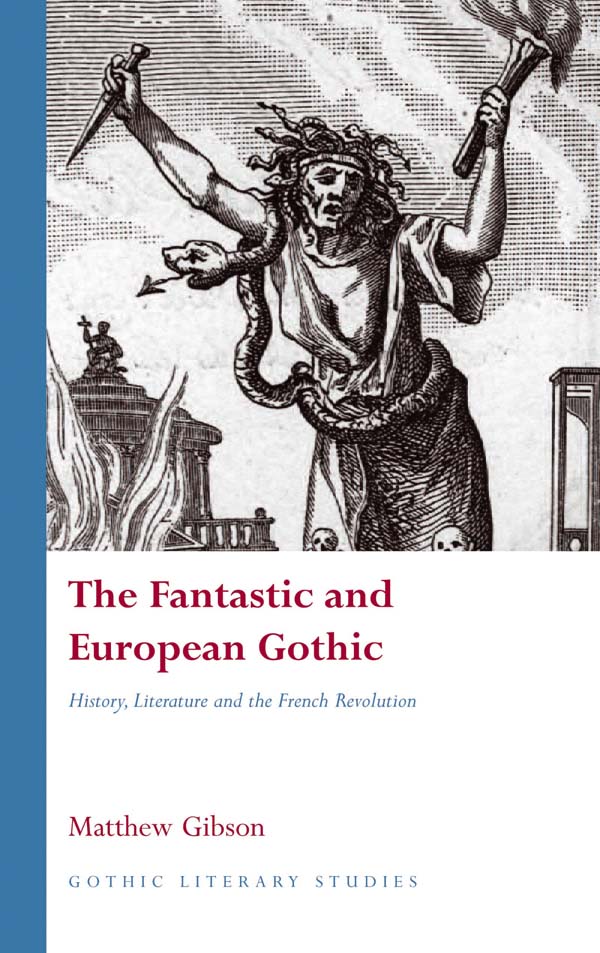The Fantastic and European Gothic
History, Literature and the French Revolution
Author(s) Matthew Gibson
Language: English
Genre(s): Literary Criticism
Series: Gothic Literary Studies
- February 2013 · 272 pages ·216x138mm
- · Hardback - 9780708325728
- · eBook - pdf - 9780708325735
- · eBook - epub - 9780708326916
This book examines the rise of Fantastic literature on the continent in the nineteenth century, the development of a European Gothic and the influence which this exerted on British writers. By examining writers like Nodier, Hoffmann, Gautier, Feval and Stevenson, the book argues firstly how their writings subvert entirely the view of the Fantastic accepted by Todorov, Punter and others, to show that it is the reversal of a pre-Enlightenment, spiritual world-view which causes terror in these works, and further demonstrates that Gothic novels frequently use allusion and anachronism to portray a cyclical view of history opposed to that of Scott.
Of all the current debates in the burgeoning field of Gothic Studies, perhaps the most urgent concerns the nature and significance of the continental tradition of the conte fantastique. Not only does Matthew Gibson's ground-breaking study provide the first coherent assessment of post-Napoleonic European Gothic, it also explores the impact that this politically and philosophically subversive continental tradition had on British writers as divergent as Sheridan Le Fanu and Robert Louis Stevenson. Linking as it does post-Revolutionary French history with the rise of French and German Romanticism and, ultimately, the Victorian Gothic, this book challenges many of our own assumptions about nineteenth-century generic conventions. Dr Terry Hale, University of Hull
Introduction 1) Fantasy and Counter-Revolution in the Theory and Fiction of Charles Nodier. 2) History and Politics in the Fantastic Fiction of Hoffmann, and his Reception in France. 3) The Double Life of the Artist in the Recits fantastiques of Theophile Gautier, and the Rejection of Bourgeois Life under the July Monarchy. 4) 'A Life in Death a Death in Life': the Legitimist Novels of Paul Feval and the Catastrophe of the Second Empire. 5) Paul Feval's Le Chevalier Tenebre and Le Fanu's 'The Room in the Dragon Volant': the Failures of the Bourbon Restoration. 6) Robert Louis Stevenson's 'Olalla', The Strange Case of Dr Jekyll and Mr Hyde and the Refutation of Utilitarian Morality. Conclusion.


